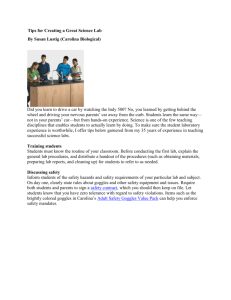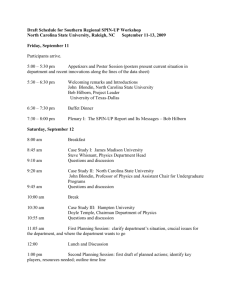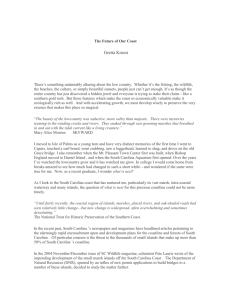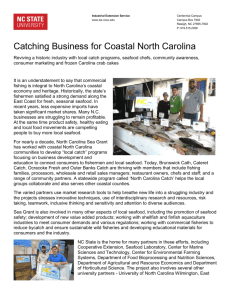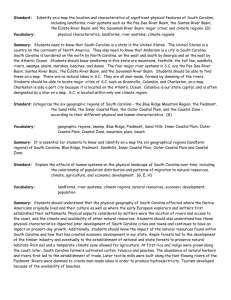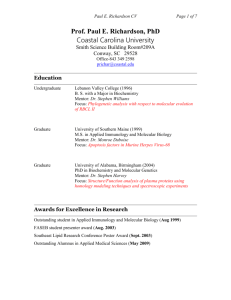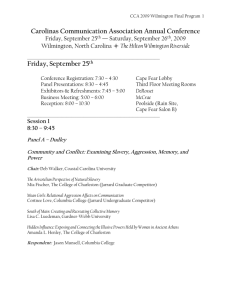North Carolina Sea Level Rise Assessment Update
advertisement
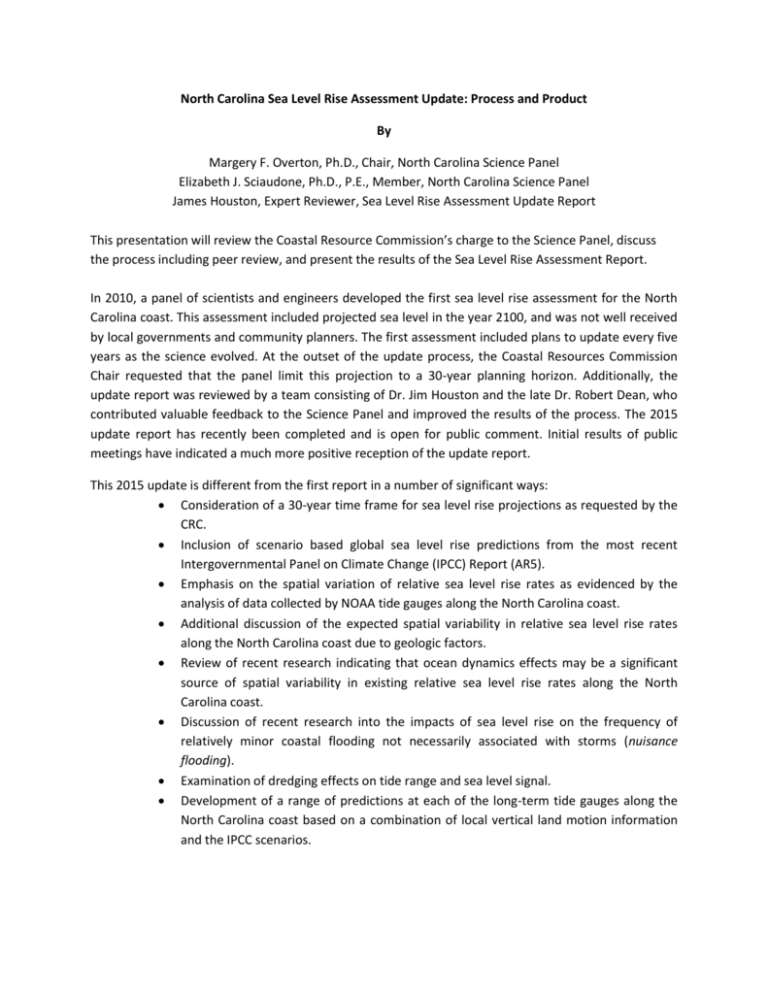
North Carolina Sea Level Rise Assessment Update: Process and Product By Margery F. Overton, Ph.D., Chair, North Carolina Science Panel Elizabeth J. Sciaudone, Ph.D., P.E., Member, North Carolina Science Panel James Houston, Expert Reviewer, Sea Level Rise Assessment Update Report This presentation will review the Coastal Resource Commission’s charge to the Science Panel, discuss the process including peer review, and present the results of the Sea Level Rise Assessment Report. In 2010, a panel of scientists and engineers developed the first sea level rise assessment for the North Carolina coast. This assessment included projected sea level in the year 2100, and was not well received by local governments and community planners. The first assessment included plans to update every five years as the science evolved. At the outset of the update process, the Coastal Resources Commission Chair requested that the panel limit this projection to a 30-year planning horizon. Additionally, the update report was reviewed by a team consisting of Dr. Jim Houston and the late Dr. Robert Dean, who contributed valuable feedback to the Science Panel and improved the results of the process. The 2015 update report has recently been completed and is open for public comment. Initial results of public meetings have indicated a much more positive reception of the update report. This 2015 update is different from the first report in a number of significant ways: Consideration of a 30-year time frame for sea level rise projections as requested by the CRC. Inclusion of scenario based global sea level rise predictions from the most recent Intergovernmental Panel on Climate Change (IPCC) Report (AR5). Emphasis on the spatial variation of relative sea level rise rates as evidenced by the analysis of data collected by NOAA tide gauges along the North Carolina coast. Additional discussion of the expected spatial variability in relative sea level rise rates along the North Carolina coast due to geologic factors. Review of recent research indicating that ocean dynamics effects may be a significant source of spatial variability in existing relative sea level rise rates along the North Carolina coast. Discussion of recent research into the impacts of sea level rise on the frequency of relatively minor coastal flooding not necessarily associated with storms (nuisance flooding). Examination of dredging effects on tide range and sea level signal. Development of a range of predictions at each of the long-term tide gauges along the North Carolina coast based on a combination of local vertical land motion information and the IPCC scenarios.



